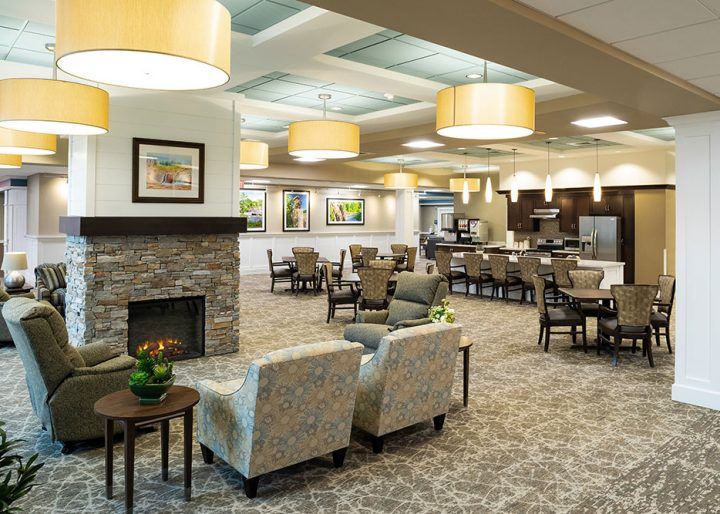Enjoy a well-organized lifestyle in a secure Memory Care community.
Discovering the Right Assisted Living Remedy for Tailored Memory Treatment Programs
The process of choosing a proper assisted living option for customized memory care programs calls for a nuanced understanding of specific requirements, particularly as they associate to cognitive impairments such as Alzheimer's and dementia. As we check out these factors, the inquiry remains: what really makes up an optimal setting for memory treatment?
Comprehending Memory Care Needs
Comprehending the distinct memory care demands of individuals with cognitive problems is critical for providing effective support and boosting high quality of life. Cognitive impairments, including Alzheimer's illness and various other kinds of dementia, considerably influence a person's capability to process info, connect, and maintain independence. As a result, customized strategies are necessary in dealing with these obstacles.
Individuals with memory problems often experience confusion, mood changes, and disorientation, demanding an encouraging and organized atmosphere. Memory treatment programs should concentrate on creating a secure room that encourages social interaction, cognitive involvement, and psychological wellness. This can be achieved through specialized activities, such as memory video games, art treatment, and memory sessions, which promote cognitive excitement and preserve individual identity.

Evaluating Staff Credentials
The certifications of team member in memory care programs are important to delivering premium support for individuals with cognitive problems. Reviewing team certifications entails evaluating both educational background and practical experience in senior citizen treatment, especially in memory-related conditions such as Alzheimer's and other types of mental deterioration.
Seek team who possess relevant accreditations, such as Licensed Dementia Practitioner (CDP) or specialized training in memory treatment. These credentials suggest a commitment to comprehending the complexities of cognitive decline and effective interaction techniques customized to citizens' special requirements. Furthermore, inquire concerning continuous training chances that employee join, as continual education is necessary in a field that develops swiftly with brand-new research study and best practices.
Additionally, assess the staff-to-resident proportion, as this directly impacts the quality of care. A lower ratio permits for even more personalized attention and engagement with homeowners. Observe staff interactions with current citizens to determine their empathy, persistence, and capacity to connect. Ultimately, a professional team is paramount in cultivating a setting that improves the self-respect and lifestyle for people in memory treatment.
Significance of Personalized Treatment Program
Individualized treatment plans play a critical duty in improving the well-being of people in memory treatment programs. These plans are customized to the one-of-a-kind demands, preferences, and capabilities of each homeowner, making certain that treatment is both appropriate and efficient. By taking into consideration elements such as case history, cognitive feature, and personal interests, caregivers can develop a detailed approach that advertises dignity and respect for every person.
The relevance of customized care plans prolongs past basic treatment requirements; they promote a complacency and knowledge, which is crucial for people experiencing memory challenges. By resolving details behavior patterns and psychological actions, caretakers can apply methods that reduce stress and anxiety and enhance total lifestyle.
Additionally, personalized treatment strategies help with better interaction among personnel, relative, and you could check here health care carriers. This collaborative strategy makes certain that everyone included is notified and lined up in their care initiatives, bring about more consistent and reliable support. Ultimately, a well-structured individualized care plan is essential in memory treatment programs, as it not just improves day-to-day living experiences but likewise contributes to the long-term wellness and happiness of residents.
Engaging Activities and Programs

Tasks such as art therapy, music sessions, and memory therapy give avenues for self-expression and cognitive interaction. These deliberate interactions not just help in preserving cognitive abilities however additionally offer emotional advantages, minimizing sensations of isolation and stress and anxiety that often go along with memory loss.
Moreover, organized team activities can urge socialization, which is essential for psychological health - Assisted Living. Normal involvement in video games, exercise classes, and area trips develops an environment of sociability and support. Tailored programs that consider specific passions and histories even more boost interaction, making tasks a lot more purposeful and efficient
Incorporating modern technology, such as memory video games and virtual fact experiences, can likewise serve to improve the day-to-day lives of homeowners, giving ingenious methods to promote cognitive feature. Inevitably, a concentrate on interesting activities and programs is vital for fostering a helpful setting that promotes holistic health in memory treatment settings.

Assessing Neighborhood Atmosphere
When examining a neighborhood environment for memory care programs, it is crucial to think about aspects that add to the total well-being and safety of locals. The physical format of the area must prioritize accessibility and navigation, reducing challenges while providing clear signage and familiar landmarks. A secure atmosphere is important to protect against citizens from roaming, which can present safety threats.
In addition, the sensory facets of the neighborhood, such as lights, color pattern, and sound levels, play a substantial duty in enhancing comfort and reducing anxiousness amongst homeowners. Natural light and outside rooms promote involvement with nature, cultivating a comforting environment that can profit cognitive function.
An additional vital aspect is the availability of qualified personnel who comprehend the unique requirements of people with memory problems. Personnel must be furnished to produce a caring setting that encourages social communication and emotional assistance.
Finally, the feeling of community and belonging is important. Involving family participation and chances for homeowners to create links with peers can considerably enhance their general quality of life. Memory Care. By carefully examining these variables, households can make enlightened choices regarding one of the most suitable memory care community for their liked ones
Conclusion
In final thought, choosing a suitable assisted living remedy for customized memory care programs necessitates a detailed assessment of specific requirements and preferences. Focusing on team qualifications, personalized treatment strategies, involving tasks, and an encouraging neighborhood environment is important for improving the lifestyle for homeowners facing cognitive obstacles. By attending to these important factors, households can ensure that their loved ones obtain the required support and care to promote psychological well-being and cognitive excitement in a nurturing setting.